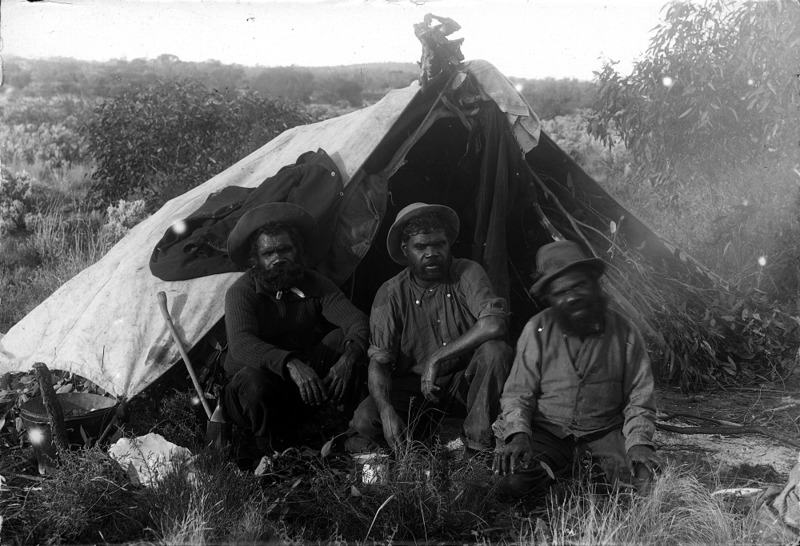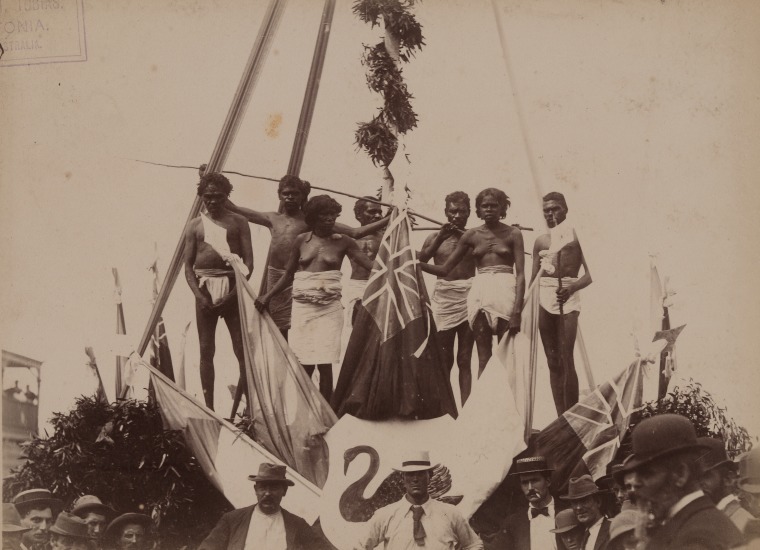Aboriginal Western Australia and Federation
Following colonisation in 1829, members of Western Australia's Aboriginal communities had been murdered, mistreated and exploited for the gain of the white settlers. Accordingly, when Western Australia was granted responsible government in 1890, the British Colonial Secretary refused to hand over control of Aboriginal affairs because of the colony's poor reputation in its treatment of Aboriginal people. Despite this rebuke, injustice toward Aboriginal people continued during and after the time of Federation.
Legal oppression
Towards the end of the nineteenth century, the colonial government introduced a range of new discriminatory measures to control its Aboriginal and multiracial populations. More than half of the Aboriginal population of the south was of mixed descent at the turn of the century.
Laws were introduced to control the movements of Aboriginal people, and their ability to work and to associate freely. These laws also applied to northern Aboriginal people employed in the pastoral industry. The multiracial population of the south was systematically excluded from white society. The 1886 Aborigines Protection Act deemed mixed-race people living with Aboriginal people to be 'natives'. The 1893 amendment to the Constitutional Act denied all Aboriginal people the franchise unless they owned the title to land valued at 50 pounds or more. This amendment effectively prevented nearly all Aboriginal Western Australians from voting.
Battle for Control
Stories of exploitation reached Britain causing outrage among social reformers. As a result, the Constitution granted to Western Australia in 1890 by Great Britain specified a minimum of 5000 pounds or 1% of the colonial gross revenue, whichever was greater, be set aside to provide for Aboriginal people in the colony. This imposition caused much resentment among colonists and for nearly ten years John Forrest led a campaign against British control of the local Aboriginal population. He finally succeeded in 1897 when the Aborigines Act (Imperial) repealed the financial provision and transferred Aboriginal affairs to the Western Australian Government.
The new Commonwealth of Australia entirely excluded and disempowered Western Australian Aboriginal people. Their many contributions to the white exploration of the hinterland were not acknowledged. The measures taken by the Western Australian Government over the next thirty years, flowing from the 1905 Aborigines Act, gave unprecedented power over Aboriginal people to the Chief Protector. Aboriginal people lost the freedom to work and live where they wished. The forced separation of many children from their Aboriginal families, and the systematic exclusion of Aboriginal people from white society through segregation, had drastic consequences that are felt to this day. It was little comfort to Aboriginal people of Western Australia that many Western Australians believed the government and Christian missions carried out these measures against them for their own good.
Focus Questions
- Do you think Aboriginal people living in metropolitan areas were affected by these actions in the same way as those living in regional areas? Why or why not?
- How many generations back was the passing of the Aborigines Act of 1897? How does it affect Western Australian Aboriginal people today?
- When was the Aborigines Act of 1905 repealed? What was it replaced by?
- When the Commonwealth was formed, it didn't recognise Aboriginal people. What factors do you think contributed to this?
- What is the difference between racism and discrimination? Which do you think applies to the treatment of Aboriginal people following Federation? How can you justify this?
Key words
Racism
Discrimination
Department of Aboriginal Affairs
Assimilation
Chief Protector of Aborigines
Stolen Generations
Further reading
Healing Foundation - Map of Stolen Generations Institutions
Kaartdijin Noongar - Impacts of Law Pre 1905
AIATSIS - Western Australia legislation affecting Aboriginal people
Australians Together - In the name of protection


